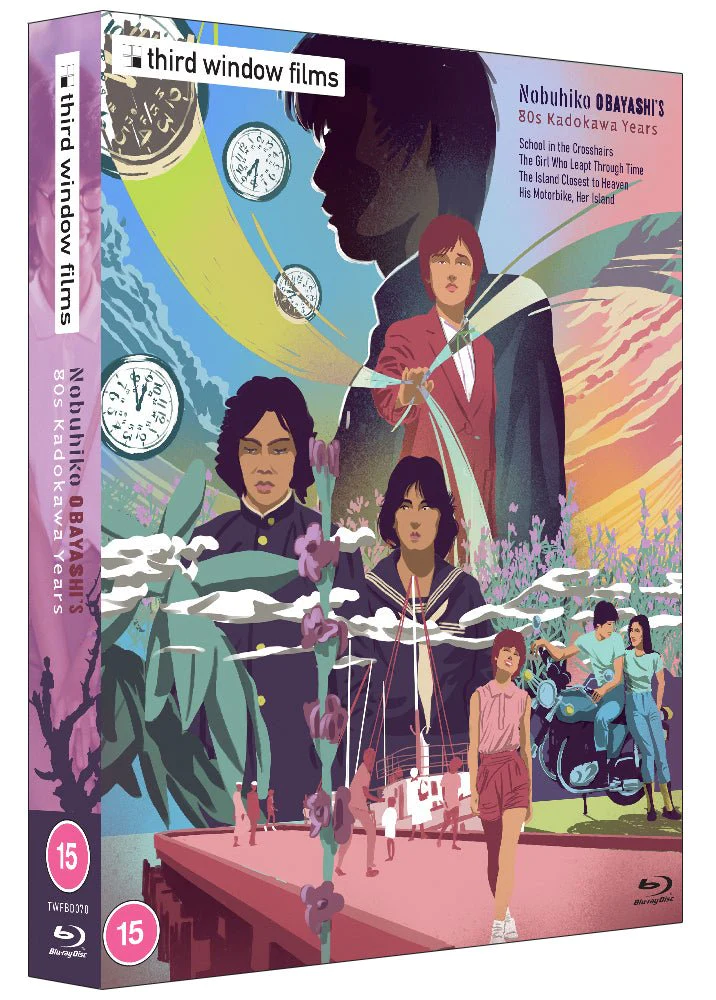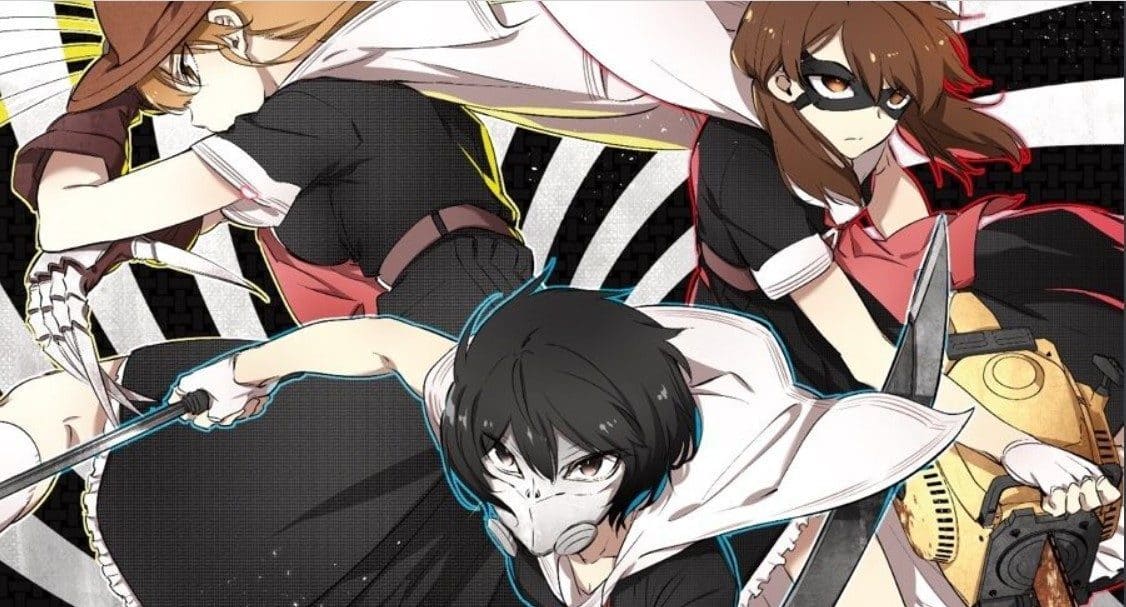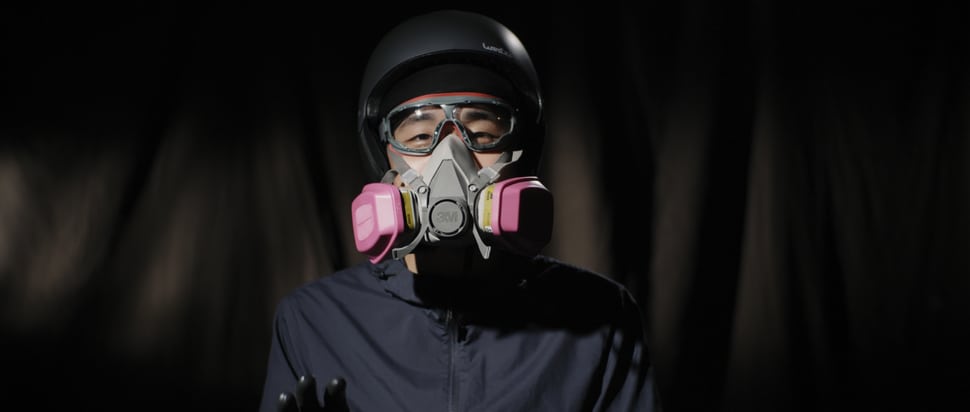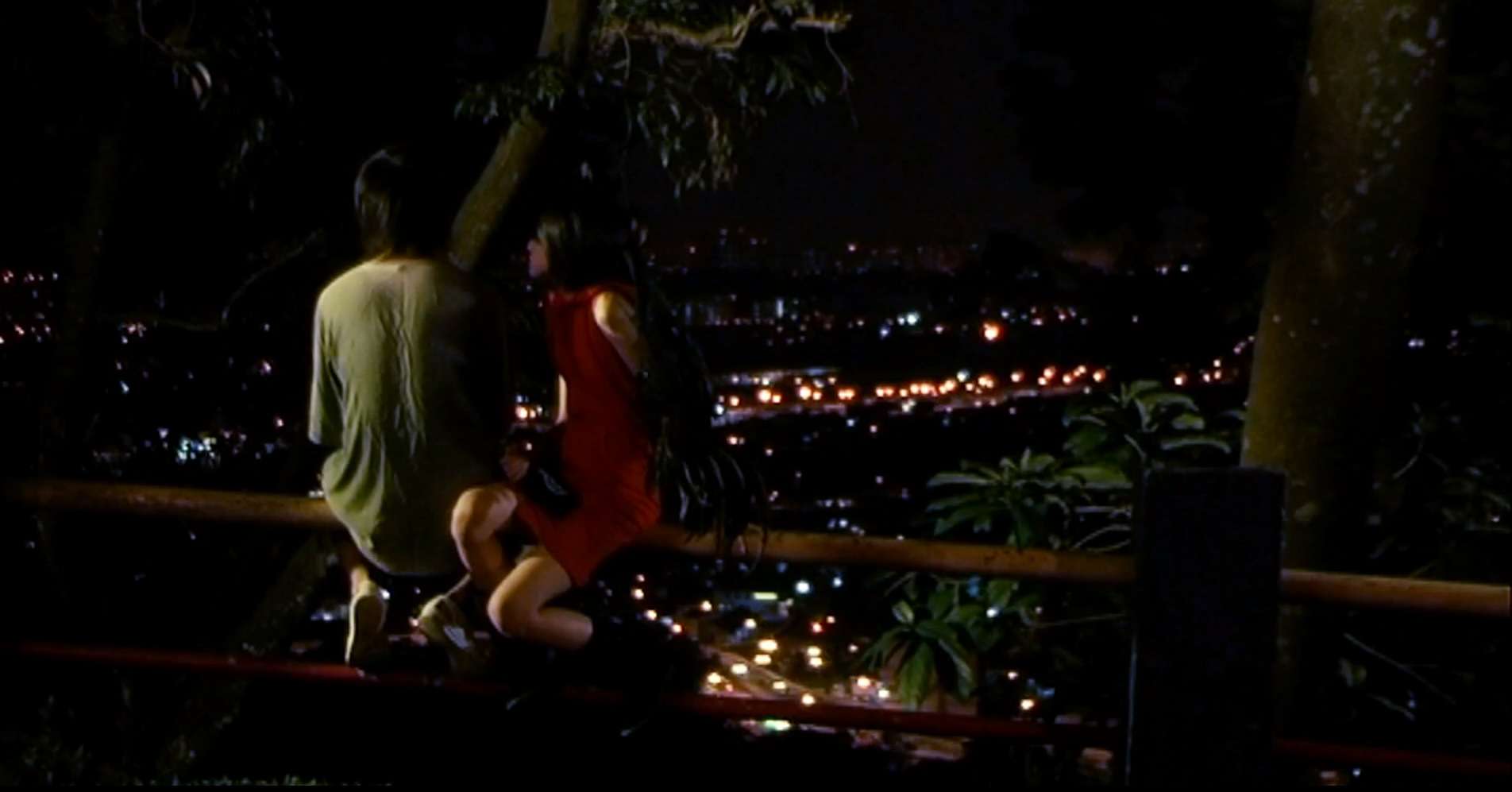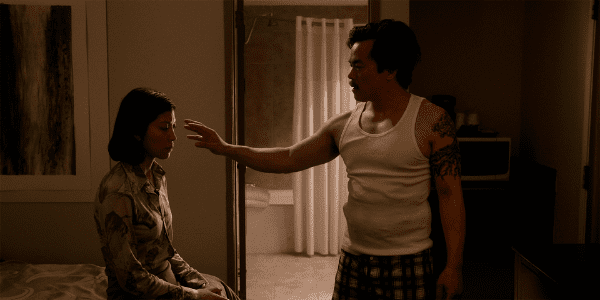Ever since features such as Dennis Hopper's “Easy Rider” or László Benedek's “The Wild One“, the image of the motorcycle is closely connected to notions like freedom, independence and rebellion. It has also sparked numerous clubs worldwide dedicated to the motorbike, a specific brand and, of course, its rider too, who almost feels like a modern-day cowboy in a way. Naturally, the cult surrounding motorcycles would also reach Japan, with many of its most famous clubs originating in the 1980s. In his 1986 feature “His Motorbike, Her Island” director Nobuhiko Obayashi would present his own approach to the various associations to the motorbike, what kind of person rides one and to what ends the longing for freedom would lead someone.
Buy This Title
on Terracotta
While balancing his studies at music school and his part-time-job as a messenger, Ko (Riki Takeuchi) still finds plenty of time riding his motorcycle, a Kawasaki, through the streets of the Japanese capital. However, after breaking up with his girlfriend Fuyumi (Noriko Watanabe), and suffering a beatdown by her brother, he decides to take a trip to the countryside in an attempt to forget the whole affair and start a “new story”. By coincidence, he runs into Miyoko (Kiwako Harada), who is also on vacation and who is quite taken with the young man in front of her, as well as his motorbike.
Upon returning to Tokyo, he calls her up and the two spent some time together on her home town, a small island community, where Ko gets to know her parents and some of the customs of the islanders. Eventually, he and Miyoko become a couple, and with her having decided to apply for a driver's license and also ride a motorcycle, Ko feels like they might turn out to be the perfect couple. However, her love for the vehicle becomes an unhealthy obsession.
In a way, “His Motorbike, Her Island” might just be one of the best road movies, considering the road more of a metaphor rather than a constant setting for its action. However, for Ko, the true love affair, at least one of them, revolves around his motorbike, emphasized by a very early scene showing him caressing the Kawasaki-logo as if it was the thigh of his loved one. The road is merely the place where this love affair can take place, while also satiating his thirst for something beyond the physical world, eternal love perhaps or something like a spiritual haven. The color scheme – changing between bright, almost dreamlike colors and monochrome black-and-white – stresses how he switches from one world to another, the real one and the one of his dreams, which is the place where his aforementioned longing might be fulfilled to some extent.
However, despite presenting the dream of his protagonist, his love and his passion in the most beautiful manner, Obayashi seems also aware of the dangers of this obsession. Aside from the character of Miyoko displaying an increasingly unhealthy hunger for speed as soon as she is able to drive a motorcycle, there is also Riki Takeuchi's protagonist, whose behavior, especially towards women, is quite strange, to put it mildly. The actor, in his first main role in a feature, impresses with his intuition for this character, finding the right balance between the pose of the motorbike rider on the one hand and his more disturbing notions on the other hand. Especially the scenes with Kiwako Harada are quite well-acted and -shot, emphasizing how he perhaps sees himself reflected in this woman, whose affection for the motorcycle is just as possessive and egotistical as his.
In conclusion, “His Motorbike, Her Island” is an interesting entry into the biker genre, or maybe even the road movie. Nobuhiko Obayashi, in spite of combining the narrative with the themes defining his work, directs quite an unusual and at times quite dark feature, with an early performance by Riki Takeuchi displaying his impressive talent.



